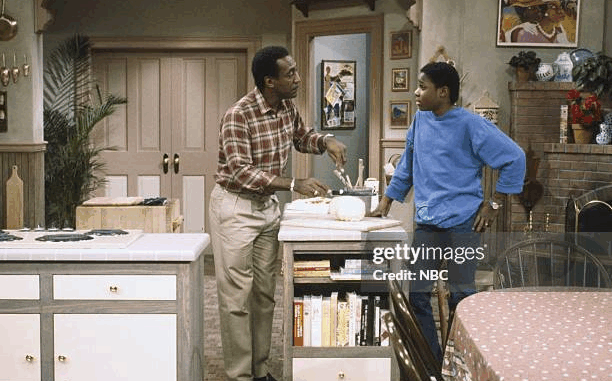
When The Cosby Show debuted in 1984, few could have predicted the profound influence it would have—not just on television, but on American culture at large. With its groundbreaking portrayal of a successful African-American family, the show didn’t just entertain; it educated, inspired, and reshaped the TV landscape for generations.
The Huxtables: A Family America Had Never Seen Before
At the heart of the show was the Huxtable family—charming, intelligent, and deeply relatable. Cliff Huxtable (played by Bill Cosby) was a warm, wisecracking doctor, while his wife Clair (Phylicia Rashad) was a brilliant attorney. Their five children were distinct personalities, each going through real-life issues with humor and heart.
Unlike the often one-dimensional characters of previous decades, the Huxtables were fully formed, dynamic, and unmistakably human. They represented a version of Black family life rarely seen on television: educated, stable, and aspirational.
Redefining Success and Aspirations
The impact of seeing Black professionals thriving on screen was enormous. For young viewers—particularly Black children—The Cosby Show served as validation that they, too, could become doctors, lawyers, artists, and leaders. For others, it challenged stereotypes and broadened understanding.
It also helped normalize conversations around parenting, education, discipline, and identity—topics that resonated across race, class, and culture. That universal relatability was key to the show’s enduring popularity.
Awards, Accolades, and Long-Lasting Legacy
Throughout its run, The Cosby Show received numerous awards, including several Emmy and Golden Globe nominations. It revitalized NBC’s Thursday night lineup and gave rise to a golden age of network sitcoms.
Its influence can be seen in countless shows that followed. From A Different World (a spin-off focusing on historically Black colleges) to today’s Abbott Elementary, the show’s legacy of inclusive storytelling and multidimensional characters is still felt.
Reconciling the Art with the Artist
Of course, any discussion of The Cosby Show today must also acknowledge the legal and moral controversies surrounding Bill Cosby. These revelations have cast a shadow over the series, prompting many to question how to honor its contributions without dismissing the harm caused.
It’s a difficult, ongoing conversation—one that reflects a broader cultural reckoning with the complicated legacies of public figures.
Conclusion
The Cosby Show was more than just a hit sitcom; it was a cultural milestone. It expanded what was possible on television and inspired a new generation of creators, actors, and viewers. While its legacy is now complicated by the actions of its lead actor, the show’s influence on TV and representation is undeniable—and still worthy of thoughtful reflection.